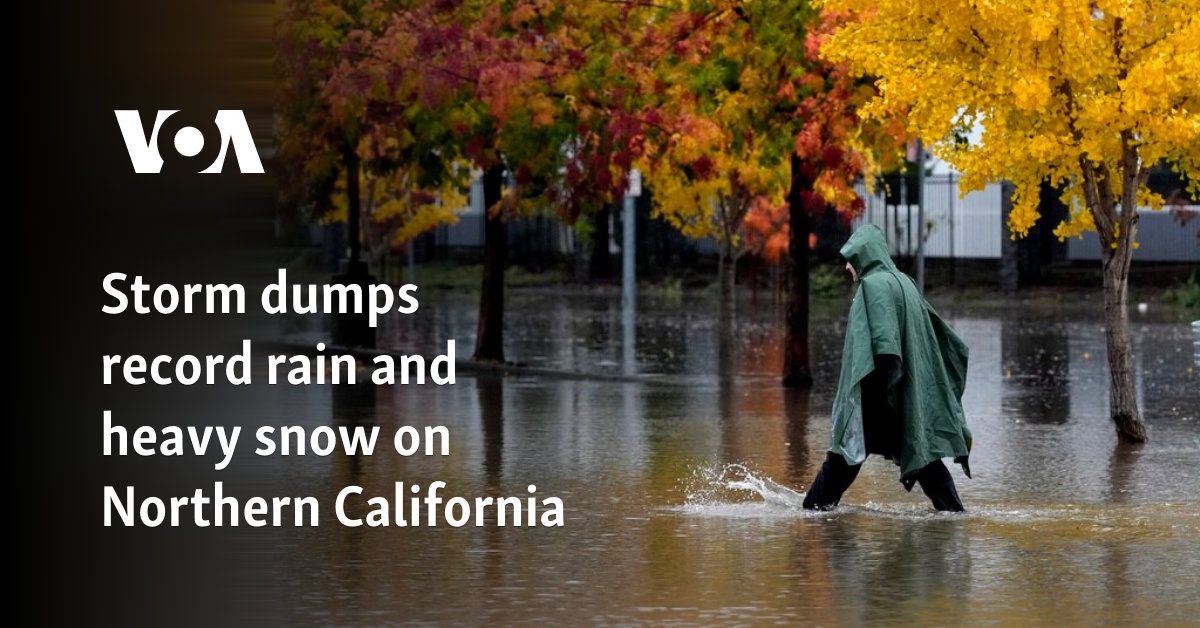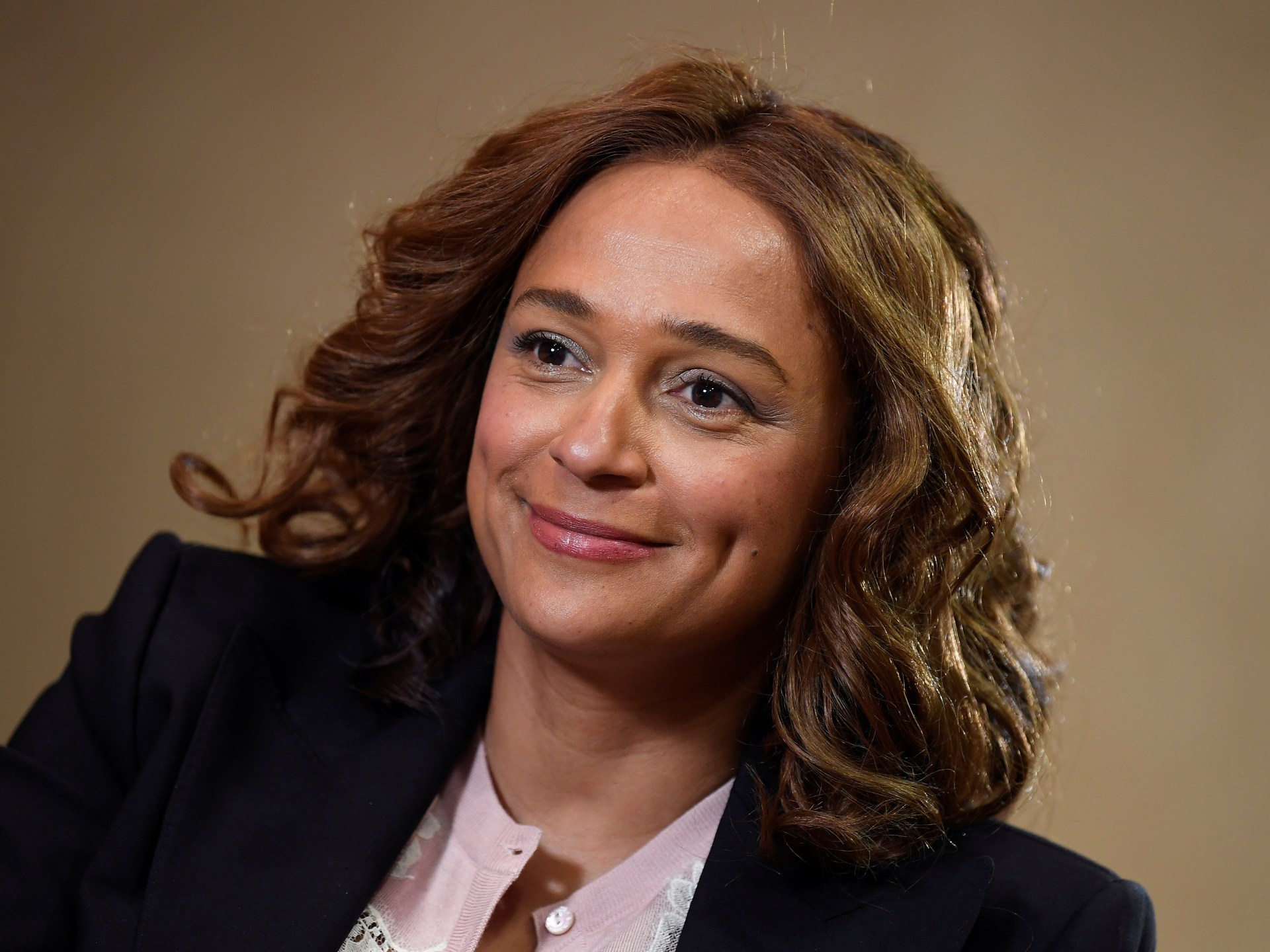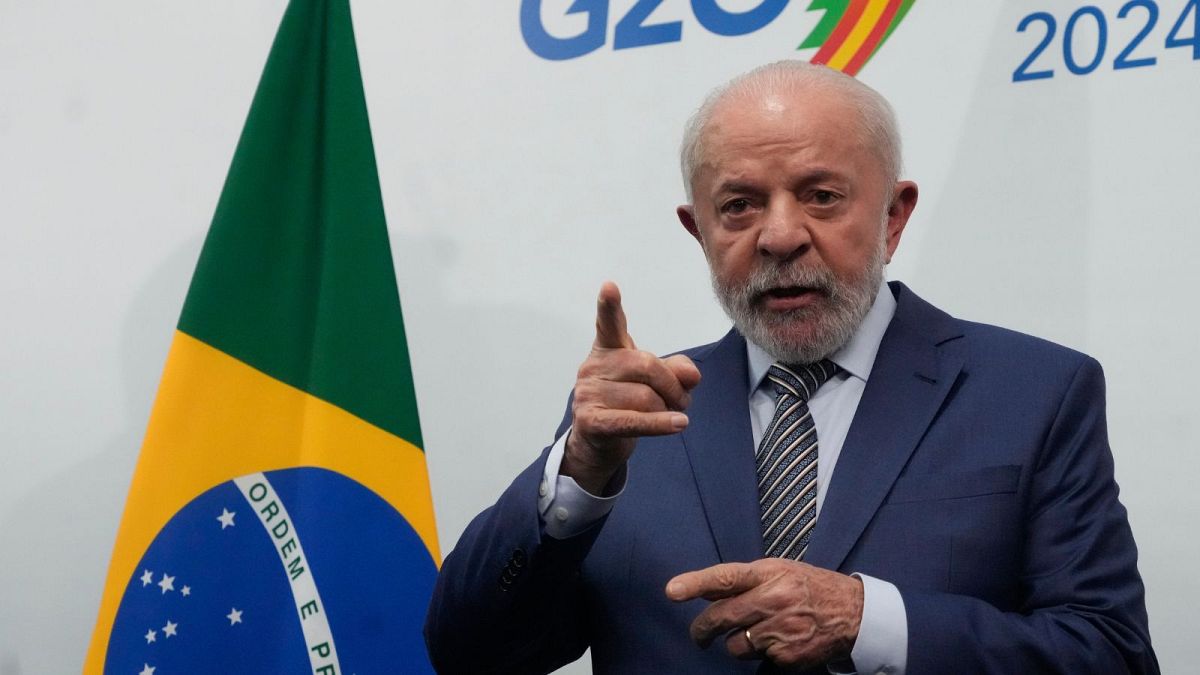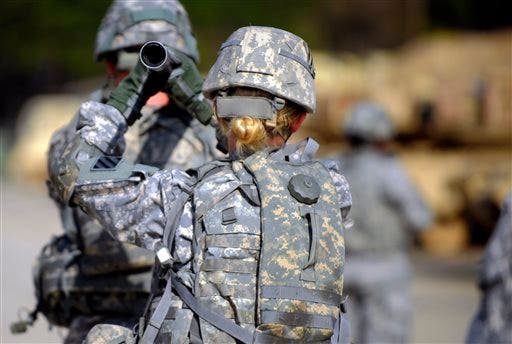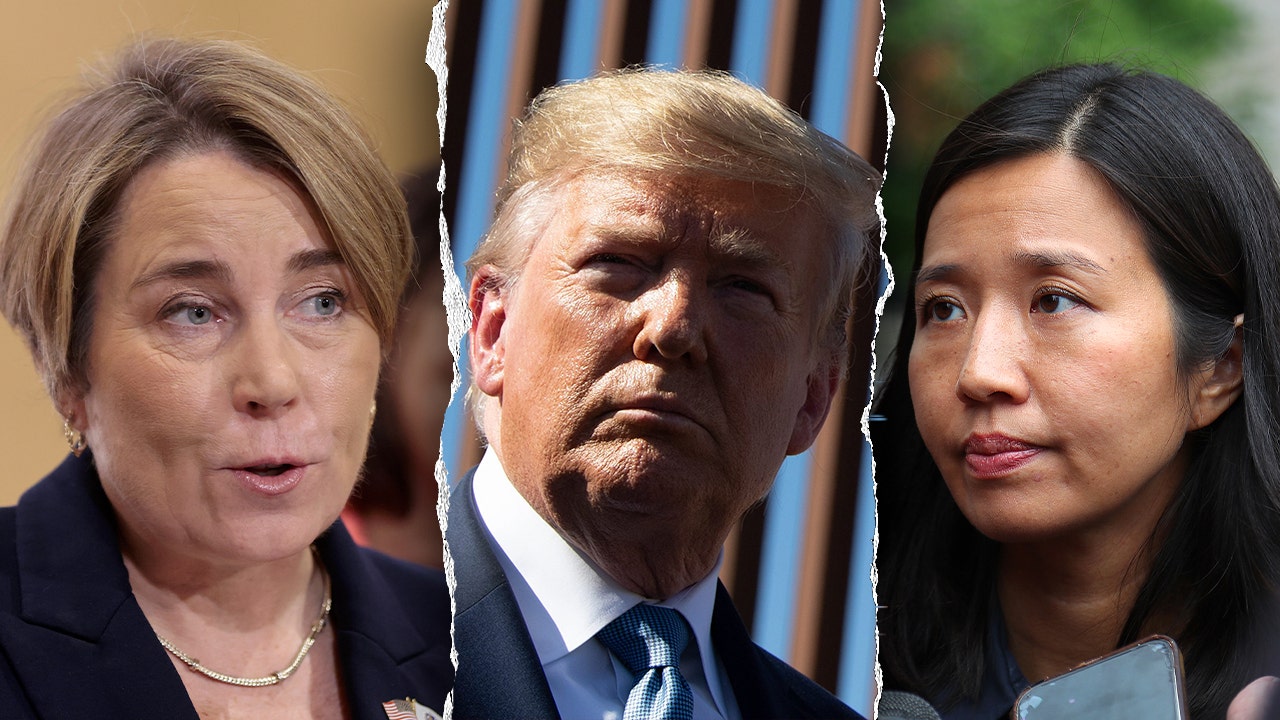Finance
Paris summit aims to overhaul global financial system for ‘climate solidarity’ with South

Around 50 heads of state, along with representatives from international institutions and civil society, will attend a summit hosted by French President Emmanuel Macron on Thursday and Friday in Paris. Their objective is to develop a new global financial system so the most vulnerable countries will be better equipped to combat both poverty and climate change.
The world’s wealthiest nations are demonstrating a “surge of solidarity” with those most vulnerable to climate change, said Cécile Duflot, president of the NGO Oxfam. Some 50 heads of state and government, representatives from international financial institutions, members of the private sector, climate experts and members of civil society will be attending the summit in Paris hosted by French President Emmanuel Macron on June 22 and 23. The objective of this ambitious conference is to “build a new contract between [the global] North and South”, according to the Élysée Palace.
Macron announced his intention to host this summit at the end of COP27 back in November, 2022. Environmentalists were not satisfied with how the climate negotiations had concluded. But in the final hours, a historic agreement was reached providing for the establishment of a fund to compensate for the effects of climate change suffered by developing countries. The initial aim of this week’s Summit for a New Global Financial Pact was to establish concrete measures to finance this fund. “From now on, the battle against poverty, the decarbonisation of our economy and the fight for biodiversity will be very closely linked,” Macron said at the time.
In the months since, the stakes have only heightened for countries in the Global South due to the combined fallout from the Covid-19 pandemic, the war in Ukraine, the climate crisis and galloping inflation. In the Palais Brongniart at Place de la Bourse, once the seat of the Paris stock exchange in the 2nd arrondissement (district), the hundreds of attendees will attempt to lay the foundations for an overhaul of the entire global financial system by adapting the post-war Bretton Woods institutions – the International Monetary Fund (IMF) and the World Bank – to today’s challenges.
On Wednesday, 13 political leaders – including Macron, US President Joe Biden, German Chancellor Olaf Scholz, British Prime Minister Rishi Sunak and Brazilian President Luiz Inacio Lula da Silva – wrote that they are “urgently working to fight poverty and inequalities” in a contribution to French daily newspaper Le Monde.
“Climate change will generate larger and more frequent disasters, and disproportionately affect the poorest, most vulnerable populations around the world,” they wrote. “These challenges cross borders and pose existential risks to societies and economies.”
“We want our system to deliver more for the planet.”
Colossal financial needs
The financial needs of the Global South are colossal. A group of independent experts, specialising in climate finance and working under the auspices of the United Nations, estimated last year that the world needs to allocate $1 trillion a year between now and 2030 for developing countries besides China to respond to the climate and biodiversity crisis.
Oxfam estimates that $27 trillion will have to be mobilised to “fight poverty, inequality and climate change in developing countries” between now and 2030, i.e., around $3.9 trillion a year. The World Bank put this estimate even higher, outlining in its 2021 climate action plan that $4 trillion a year will be needed between now and 2030 to build infrastructure that meets the needs of developing countries.
Governments present at the summit for a new global financial pact this week will not be making financial pledges but are instead expected to discuss the most effective means of financing. The first items on the agenda are those based on already established commitments.
“Developed countries have already pledged to allocate 0.7% of their wealth to developing countries and to contribute $100 billion to the climate. But for the moment, these funds have only been partially distributed, if at all,” said Désiré Assogbavi, the director for French-speaking Africa at ONE, a global anti-poverty NGO, at a press conference on Tuesday.
G7 countries in 2021 considered reallocating $100 billion in Special Drawing Rights (SDRs), an IMF reserve currency that is proportional to a country’s capital, to developing countries.
“This measure has been blocked in the eurozone, but this could easily be resolved by a political decision,” said Assogbavi, calling for the blockage to be lifted “by the end of the year”.
“On the last day of the summit, we hope that very clear mechanisms will be announced so that each of these commitments can be implemented.”
Taxes on major polluters and financial transactions
At the same time, new sources of funding will need to be explored. Within civil society, several associations and NGOs are already putting forward a number of ideas. First, they are calling for taxes to be introduced on the biggest polluters, in particular fossil fuel companies, due to “their historic responsibility for climate chaos”. In early June, 12 associations signed a petition asking Macron to tax the fossil fuel industry. They had gathered more than 31,000 signatures as of June 21. “This tax would enable us to raise up to $300 trillion,” said Fanny Petitbon, head of advocacy for the NGO CARE France.
“Why not also introduce a tax on financial transactions, which would raise $440 billion?” asked Petitbon. The principle of this tax is simple: given the scale of the transactions carried out on the financial markets, applying even a very low tax rate would help raise significant tax revenue without having any impact on how the markets work.
Ahead of the Paris summit, only a consensus on taxing maritime transport seems to be emerging, which could generate between $60 and $80 billion a year, according to the World Bank. “The subject could come to fruition in July when the International Maritime Organisation meets,” said Petitbon. “But the question of how the money will be used has yet to be decided. While some advocate that it should go to developing countries, others are calling for it to be used to decarbonise the maritime sector.”
Debt relief
In addition to the major issue of financing, the other dossier on the table is the debt owed by developing countries. “Debt servicing for developing countries is at its highest level since the end of the 1990s, and 93% of the countries most vulnerable to climate-related disasters are over-indebted, or not far from it,” said Lison Rehbinder, development finance advocacy officer at the CCFD-Terre Solidaire NGO.
“Today, countries in crisis are forced to repay their debts to creditor states, financial institutions and private banks, and this prevents them from investing in public services or fighting against climate change,” she said.
For the moment, the plan under discussion is to introduce clauses in loan contracts that would allow repayments to be suspended in the event of a climate disaster, according to Rehbinder. Adopted by G20 countries during the Covid-19 pandemic, this measure would become automatic. “But we need to go further and think about large-scale debt cancellation,” she said. “That’s the only way for countries to get their heads above water.”
Harjeet Singh, head of global policy strategy at Climate Action Network International, agreed. “The richest countries continue to mostly provide the countries of the South with loans – in 2020, grants accounted for just 26% of committed climate funding,” he said. “The fight against climate change must quickly move away from this profit-driven logic.”
The associations argue that it will only be possible to implement all these measures if the major multilateral development banks, primarily the World Bank, adopt bolder lending policies.
Political will
France acknowledges, however, that Paris will not be able to make any concrete decisions at this summit. According to the Élysée Palace, the meeting’s main purpose is to draw up a guide that will be used at the next G20 summit in India in September, the annual meetings of the IMF and World Bank in October, and COP28 in Dubai in early December.
“This event will put many important issues at the centre of international discussions,” said Duflot. “Unfortunately, it is still too unambitious, though we can no longer wait to implement far-reaching solutions.”
“It’s not the money that’s lacking, but the political will. The heads of government must now shoulder their responsibilities,” said Petitbon. “Because beyond funding, it’s all about rebuilding trust between the countries of the North and South.”
This article has been translated from the original in French.

Finance
Cop29: $250bn climate finance offer from rich world an insult, critics say
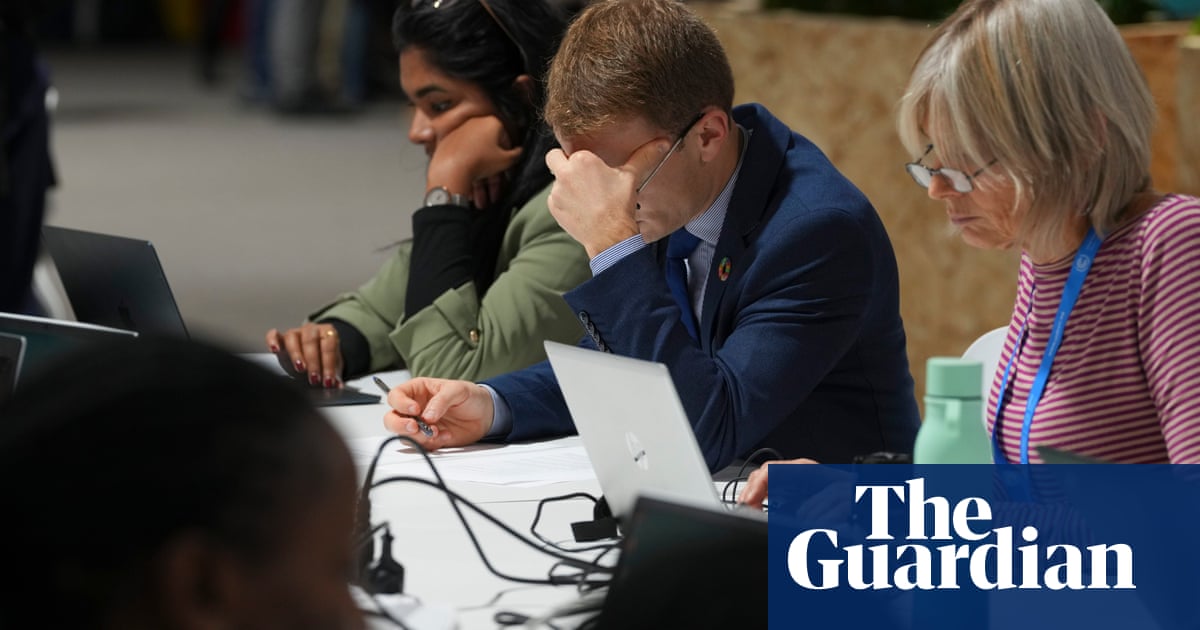
Developing countries have reacted angrily to an offer of $250bn in finance from the rich world – considerably less than they are demanding – to help them tackle the climate crisis.
The offer was contained in the draft text of an agreement published on Friday afternoon at the Cop29 climate summit in Azerbaijan, where talks are likely to carry on past a 6pm deadline.
Juan Carlos Monterrey Gómez, Panama’s climate envoy, told the Guardian: “This is definitely not enough. What we need is at least $5tn a year, but what we have asked for is just $1.3tn. That is 1% of global GDP. That should not be too much when you’re talking about saving the planet we all live on.”
He said $250bn divided among all the developing countries in need amounted to very little. “It comes to nothing when you split it. We have bills in the billions to pay after droughts and flooding. What the heck will $250bn do? It won’t put us on a path to 1.5C. More like 3C.”
According to the new text of a deal, developing countries would receive a total of at least $1.3tn a year in climate finance by 2035, which is in line with the demands most submitted before this two-week conference. That would be made up of the $250bn from developed countries, plus other sources of finance including private investment.
Poor nations wanted much more of the headline finance to come directly from rich countries, preferably in the form of grants rather than loans.
Civil society groups criticised the offer, variously describing it as “a joke”, “an embarrassment”, “an insult”, and the global north “playing poker with people’s lives”.
Mohamed Adow, a co-founder of Power Shift Africa, a thinktank, said: “Our expectations were low, but this is a slap in the face. No developing country will fall for this. It’s not clear what kind of trick the presidency is trying to pull. They’ve already disappointed everyone, but they have now angered and offended the developing world.”
The $250bn figure is significantly lower than the $300bn-a-year offer that some developed countries were mulling at the talks, to the Guardian’s knowledge.
The offer from developed countries, funded from their national budgets and overseas aid, is supposed to form the inner core of a “layered” finance settlement, accompanied by a middle layer of new forms of finance such as new taxes on fossil fuels and high-carbon activities, carbon trading and “innovative” forms of finance; and an outermost layer of investment from the private sector, into projects such as solar and windfarms.
These layers would add up to $1.3tn a year, which is the amount that economists have calculated is needed in external finance for developing countries to tackle the climate crisis. Many activists have demanded more: figures of $5tn or $7tn a year have been put forward by some groups, based on the historical responsibilities of developed countries for causing the climate crisis.
after newsletter promotion
This latest text is the second from an increasingly embattled Cop presidency. Azerbaijan was widely criticised for its first draft on Thursday.
There will now be further negotiations among countries and possibly a new or several new iterations of this draft text.
Avinash Persaud, a former adviser to the Barbados prime minister, Mia Mottley, and now an adviser to the president of the Inter-American Bank, said: “There is no deal to come out of Baku that will not leave a bad taste in everyone’s mouth, but we are within sight of a landing zone for the first time all year.”
Finance
US Treasury Selects BNY as Financial Agent for Direct Express Program | PYMNTS.com

The Bank of New York Mellon (BNY) will serve as the financial agent for the Direct Express program, which provides 3.4 million Americans with a prepaid debit card to receive monthly federal benefits.
The U.S. Department of the Treasury’s Bureau of the Fiscal Service said in a Thursday (Nov. 21) press release that it selected BNY for this role after evaluating proposals from multiple financial institutions and seeing the bank’s offering of features and customer service options.
The new agreement will begin Jan. 3 and will last five years, according to the release.
“Since 2008, the Direct Express program has paid federal beneficiaries seamlessly, inclusively and securely, while sparing taxpayers and customers the costs and risk associated with cashing paper checks,” Fiscal Service Commissioner Tim Gribben said in the release. “This new agreement will further our goals of delivering a modern customer experience and strengthening Treasury’s commitment to paying the right person, in the right amount, at the right time.”
With this agreement, BNY will add to the cardholder experience features like online/digital funds access, bill pay, cardless ATM access, omnichannel chat and text customer service, online dispute filing and in-person authentication options, the bank said in a Thursday press release.
“Drawing on our leading platform capabilities, we look forward to advancing the program’s goal of providing high-quality financial services to individuals and communities throughout the U.S.,” Jennifer Barker, global head of treasury services and depositary receipts at BNY, said in the release.
Seventy-seven percent of the recipients of disbursements opt for instant payments when given the option, according to the PYMNTS Intelligence and Ingo Payments collaboration, “Measuring Consumers’ Growing Interest in Instant Payouts.”
That’s because consumers looking for disbursements — paychecks, government payments, insurance settlements, investment earnings — want their money quickly, the report found.
In October, the Treasury Department credited the Office of Payment Integrity, within the Bureau of the Fiscal Service, with enhancing its fraud prevention capabilities and expanding offerings to new and existing customers.
The department said its “technology and data-driven” approach allowed it to prevent and recover more than $4 billion in fraud and improper payments, up from $652 million in 2023.
Finance
Islamic finance: a powerful solution for climate action – Greenpeace International

Across the globe, Muslim communities find themselves disproportionately affected by climate change, with extreme weather events, rising food insecurity, and other climate impacts taking a toll on their livelihoods, cultural practices, and spiritual life.
In the last few years, devastating floods swept through Pakistan, affecting millions, displacing thousands, and leaving entire communities struggling to rebuild. In Indonesia, one of the world’s most populous Muslim-majority countries, rising sea levels threaten to submerge coastal villages and erode vital agricultural lands. Meanwhile, in parts of the Middle East and North Africa, persistent droughts and water scarcity are increasing pressures on already fragile ecosystems and economies.
The climate crisis is having a profound impact on the daily lives and religious practices of millions of people
These climate pressures extend beyond immediate threats to survival. Climate change has also begun affecting food security in Muslim-majority regions, especially during Ramadan, a holy month where fasting is practised from dawn until dusk. In communities already grappling with the impacts of droughts or floods, maintaining food stocks for Ramadan can become a significant challenge. In Somalia, where cycles of drought and flash floods have eroded food systems, many families are forced to navigate long-standing shortages, with climate-induced shocks compounding existing vulnerabilities.
Food insecurity is a worsening crisis as global warming affects harvests, disrupts fisheries, and drives up food prices, making the observance of Ramadan particularly strenuous, both physically and economically. This brings climate change into the daily lives and religious practices of millions in profound ways, reminding us that the climate crisis is as much a social and economic issue as it is an environmental one.
Islamic finance: a financial system grounded in ethical responsibility
Islamic finance has been operating in the global financial system for decades, providing an ethical foundation rooted in Islamic principles that promote fairness, social responsibility, and environmental stewardship.
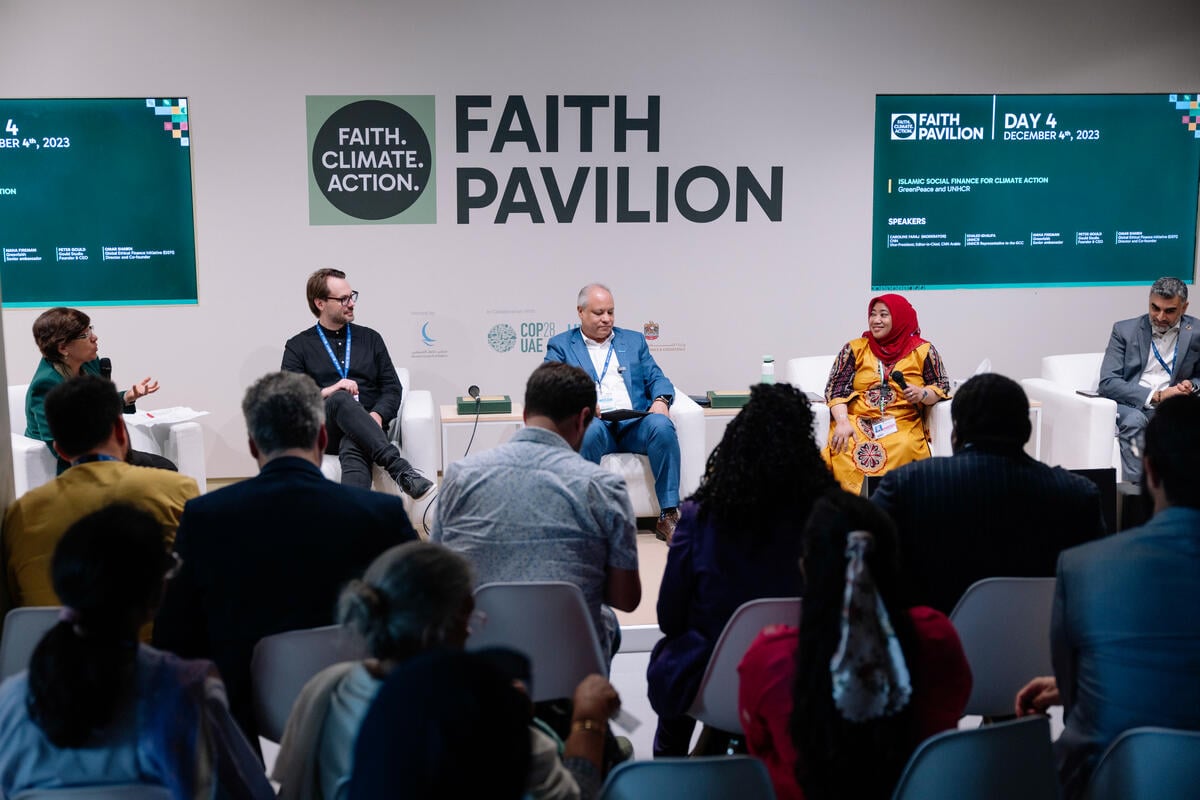
Ethical banking is a core pillar of Islamic finance. Through principles like zakat (charity) and waqf (endowment for public good), Islamic finance encourages financial activity that uplifts communities, supports sustainable projects, and avoids investments in industries harmful to people and the planet.
Many Islamic financial institutions in countries like Malaysia, the United Arab Emirates, and Saudi Arabia already support projects aimed at protecting the environment and enhancing social welfare. Success stories are already emerging. Malaysia’s green sukuk initiative has mobilised billions for renewable energy projects, while the UAE’s recent US$3.9 billion in green sukuk issuance demonstrates growing momentum. Saudi Arabia’s Vision 2030 has allocated US$50 billion for renewable initiatives, targeting an emissions reduction of 278 million tons by 2030.
A US$400 billion opportunity for climate action
While Islamic finance principles already provide a framework that aligns well with sustainability, there is still much room to strengthen its role in addressing the climate crisis, enhancing resilience in vulnerable communities, and shifting investments towards clean, renewable energy.
A new report by Greenpeace Middle East & North Africa (MENA) (as part of the Ummah For Earth Alliance) and the Global Ethical Finance Initiative (GEFI), highlights the transformative potential of Islamic finance in accelerating the global transition to renewable energy and addressing the triple planetary crisis: climate change, pollution, and biodiversity loss.
The report shows that the Islamic finance industry continues its robust expansion, with assets projected to reach USD$ 6.7 trillion by 2027, and that a strategic allocation of just 5% toward renewable energy and energy efficiency initiatives could mobilise approximately USD$ 400 billion by 2030 – a transformative sum for climate-vulnerable regions.
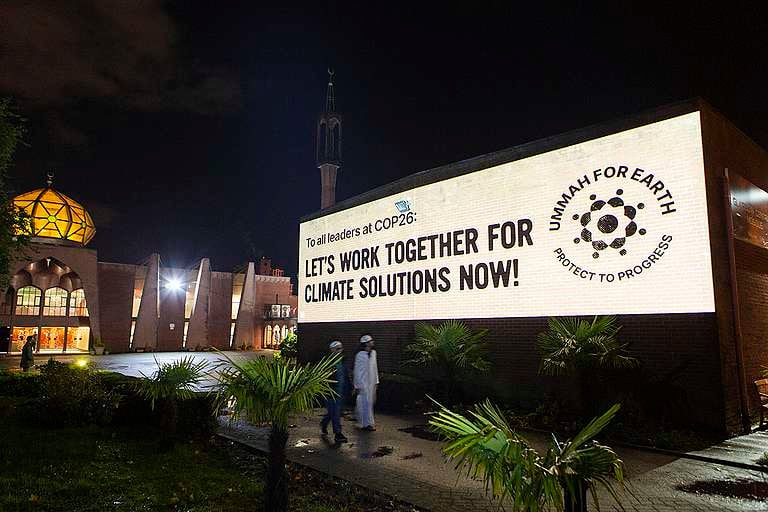
Islamic finance can help foster climate-resilient infrastructure, restore and protect biodiversity, and finance climate adaptation projects in at-risk communities. By explicitly directing funds away from fossil fuels and into green energy projects, Islamic financial institutions like the Islamic Development Bank (IsDB) can lead by example, especially in regions that are both vulnerable to climate impacts and hold significant influence in the global fossil fuel market. These institutions must accelerate their commitment to renewable energy investments.
As climate impacts intensify, Islamic finance offers a bridge between faith-based values and practical climate solutions. The convergence of Islamic finance and climate action represents more than a financial opportunity – it’s a moral imperative aligned with Islamic principles of environmental stewardship (khalifah) and balance (mizan).
Islamic finance, grounded in ethical principles and community responsibility, has a unique role to play in the global climate movement, particularly in the Global South. For millions across the globe, this form of finance offers a culturally relevant and powerful instrument to not only protect their communities from the worsening climate crisis but to promote environmental and economic sustainability in ways that align with their beliefs. Islamic finance offers a bridge between economic strength and ethical stewardship, creating pathways toward a more equitable and sustainable world for all.
Your voice can transform Islamic fiance
Ask your Islamic bank to support increasing investments in renewable energy!
Take action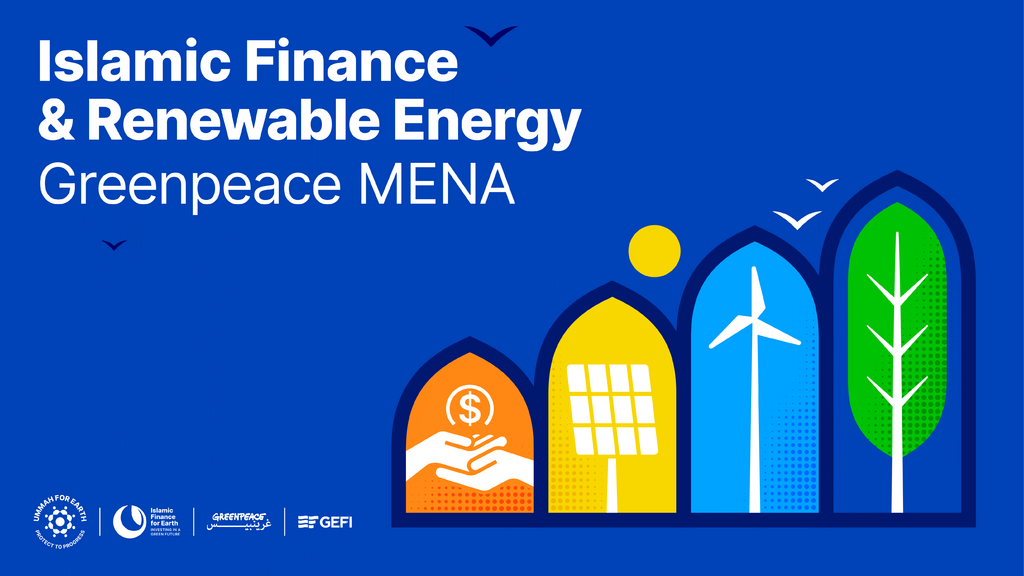
-
Business1 week ago
Column: OpenAI just scored a huge victory in a copyright case … or did it?
-

 Health1 week ago
Health1 week agoBird flu leaves teen in critical condition after country's first reported case
-

 Business6 days ago
Business6 days agoColumn: Molly White's message for journalists going freelance — be ready for the pitfalls
-
World1 week ago
Sarah Palin, NY Times Have Explored Settlement, as Judge Sets Defamation Retrial
-

 Science3 days ago
Science3 days agoTrump nominates Dr. Oz to head Medicare and Medicaid and help take on 'illness industrial complex'
-

 Politics5 days ago
Politics5 days agoTrump taps FCC member Brendan Carr to lead agency: 'Warrior for Free Speech'
-
/cdn.vox-cdn.com/uploads/chorus_asset/file/25739950/247386_Elon_Musk_Open_AI_CVirginia.jpg)
/cdn.vox-cdn.com/uploads/chorus_asset/file/25739950/247386_Elon_Musk_Open_AI_CVirginia.jpg) Technology4 days ago
Technology4 days agoInside Elon Musk’s messy breakup with OpenAI
-

 Lifestyle5 days ago
Lifestyle5 days agoSome in the U.S. farm industry are alarmed by Trump's embrace of RFK Jr. and tariffs
